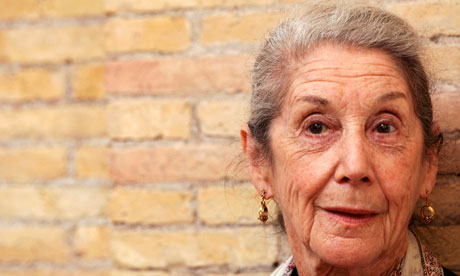
In 2000 I published The Devil That Danced on the Water, a memoir of my father and my country, Sierra Leone. The country was emerging from civil war, still reeling from the violence, which most people simply didn't see coming. Yet my father, who had been a political prisoner in the 1970s, had foreseen it. He had put his thoughts down on paper, writing that if the country continued on its path towards a one-party state, it would end in war. That was 1975, shortly before his death. My memoir was an attempt, among other things, to discover how a country implodes.
Before becoming a writer I had worked as a BBC journalist. Frustrated by the constraints of reporting, I found myself drawn not just to longer form, but to fiction. I became obsessed with tracing beginnings, from the first flap of the butterfly's wings to the roar of the hurricane of war.
Around the time I started my first novel, I came across the words: "Non-fiction uses fact to help us see the lies. Fiction uses metaphor to help us see the truth." I pinned the words on a piece of paper to my noticeboard, and tried and failed to find the originator of that observation. Later, I read an essay by the Nobel prize-winning South African author Nadine Gordimer, titled Witness: the Inward Testimony. The essay is based on a Pen lecture given by Gordimer for International Writers' Day in 2002 and published in a collection, Burn this Book. She put into words the artistic journey I had accidentally embarked upon.
Gordimer opens her essay with the events of 11 September 2001: "Terror pounced from the sky and the world made witness to it." She contemplates the media coverage of the felling of the twin towers, the difference between the reporter's job, the pundit's job and that of the writer. "Meaning is what cannot be reached by the immediacy of the image, the description of the sequence of events, the methodologies of expert analysis … Kafka says the writer sees among the ruins 'different (and more) things than others … it is seeing what is really taking place'." Gordimer called it "witness literature".
Witness literature is fiction, not non-fiction, an interplay of sometimes real events or a context that is real, with fictional events and characters, combined with the aesthetic qualities of fiction. Witness literature is also not autobiographical fiction. It took me a while to understand why western journalists insisted on describing my novels as autobiographical, since they are no more so than, say, Chesil Beach is based on Ian McEwan's actual wedding night.
In any case, I had written a memoir and published it as such. In time I realised a certain intellectual laziness was in play, that because those journalists did not recognise the things I wrote about as coming from their own lives, ergo they must have come from mine. When I am in Sierra Leone, no journalist or reader ever asks if my novels are "autobiographical". To them I am writing a shared story, our story. In Sri Lanka, Colombia, Nigeria, India and even Spain, readers recognise a description of their lives and experiences even though the stories are set on another continent. What we all have in common is the experience of civil conflict.
Writing is a process of synthesis, the taking of strands from one place and another, using form and language to fashion something new. It does not constrain the artistic liberty of the writer, as some might argue. Here Gordimer quotes not a writer but a painter, Picasso. "'What do you think an artist is? An imbecile who has nothing but eyes if he is a painter and ears if he is a musician … quite the contrary, he is at the same time a political being, constantly aware of what goes on in the world … and he cannot help being shaped by it.' And there emerges Guernica."
For Gordimer, "witness" is foremost an aesthetic quest. It is what writers can, must even, give as it comes with "the awesome responsibility of their endowment of the seventh sense of the imagination". It is "the transformation of events, motives, emotions, reactions, from the immediacy into the enduring significance that has meaning".
To me, writers of "witness" need not necessarily be bound by place or setting. My latest novel is set in Croatia. In recent years, in conversations with friends from the former Yugoslavia, I was struck by the similarities of our experiences and also the differences. In my view, Sierra Leonians have committed the greatest act of postwar forgiveness I have ever known. The same cannot be said of the former Yugoslavia.
The biggest difference between those two wars is that the war in Yugoslavia was fought on a nationalist agenda and along ethnic lines. The war in Sierra Leone came after 30 years of dictatorship, and was an expression of rage. Ethnic cleansing, the creation of the "other" – these things were absent. I believe this has made it more possible to forgive.
In the former Yugoslavia, those who have been most sinned against are, for the most part, gone. Those who survive now live in different countries to the people who betrayed them. Attempts at truth and reconciliation have foundered for lack of will. Sometimes the outsider bearing "witness" can bring a new dimension to familiar events.
I may, one day, become a different kind of writer, one who finds other kinds of stories and other kinds of reasons for shaping and fashioning them with words. But for the last decade "witness" as been my quest, as it was Nadine Gordimer's for 60 years.

